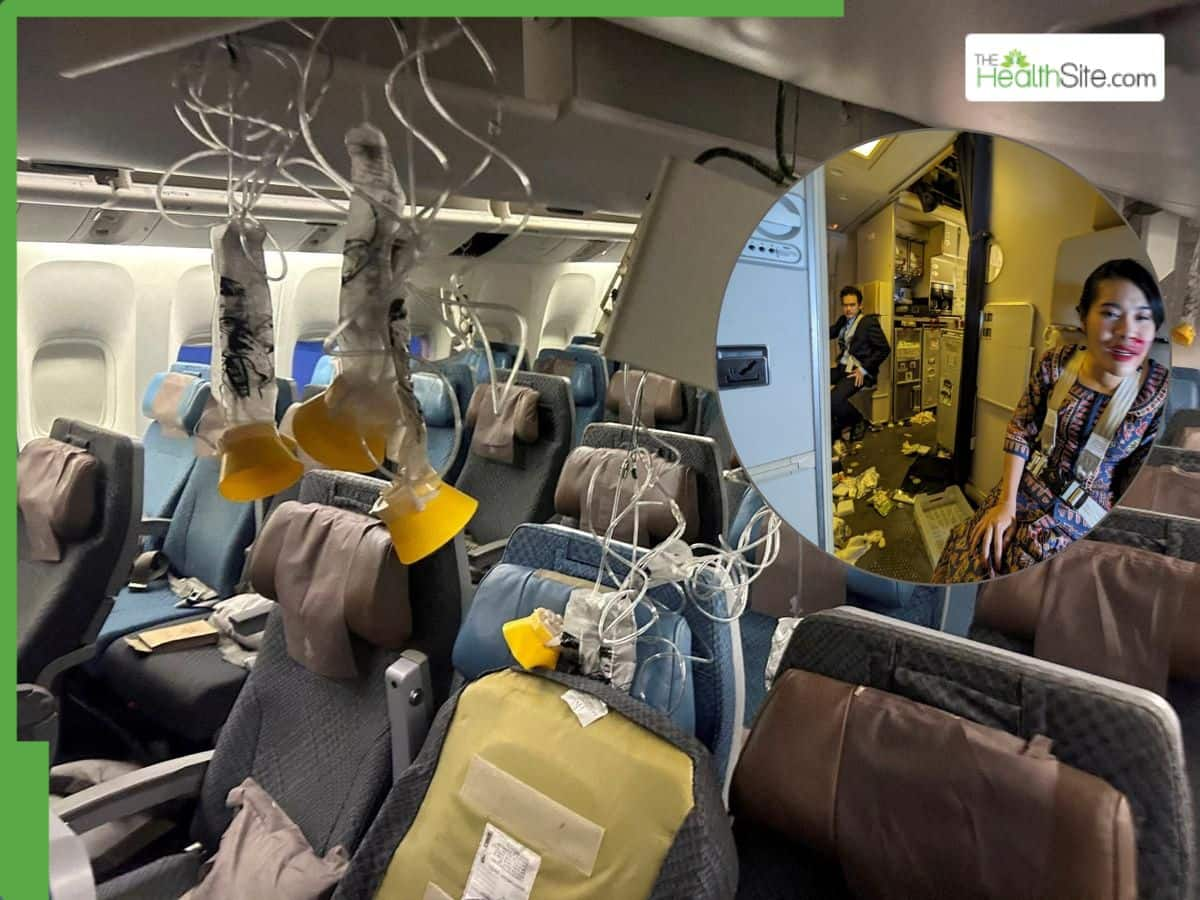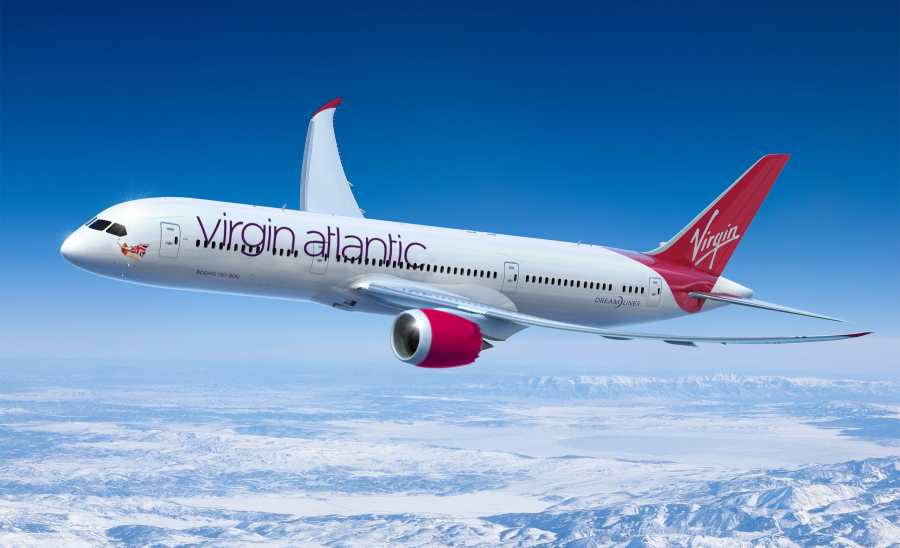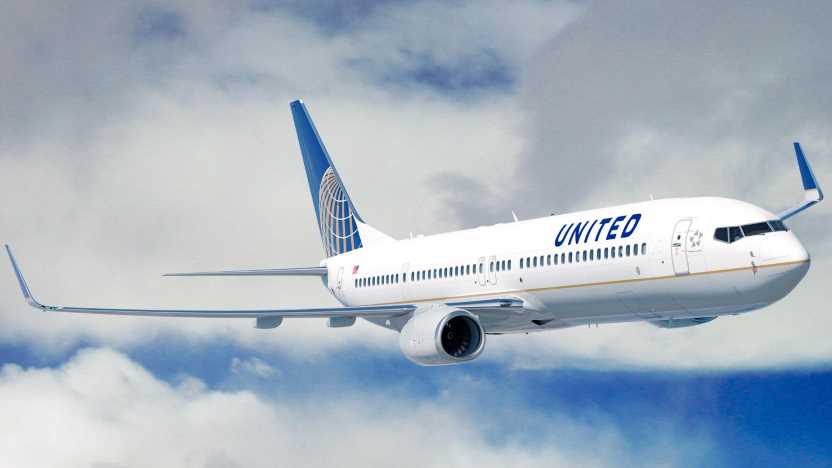Trump threatens new tariffs on European Union and Apple, reigniting trade fears
Hiring is slowing, and job seekers are feeling it.
Active job seekers are losing confidence in their ability to land or hold a job these days, according to the latest findings of LinkedIn's Workforce Confidence survey.
Among unemployed and employed people looking for new jobs, confidence to find — or keep — work is at +10 on a scale from -100 to +100. That's just one point off from the lows seen when the survey started five years ago. In April 2020, when the pandemic brought the economy to a standstill, confidence among active job seekers was at +9.
Economic uncertainty has also been impacting confidence this year. Job confidence typically spikes in January due to New Year's optimism, but this January, job confidence hit +20, already down 11 points year-over-year from +31. It has since tumbled to +10.
Do these findings line up with what you'd expect? What advice do you have for someone navigating a challenging job hunt right now?
Boeing and the Department of Justice on Friday reached an agreement that'll keep the aircraft maker from facing criminal charges related to two fatal plane crashes that killed 346, according to court filings.
The proposed two-year deal will require:
🔴 Boeing’s board of directors to meet with the crash victims’ families
🔴Boeing to admit conspiracy to obstruct and impede the lawful operation of the Federal Aviation Administration
🔴Pay over $1.1 billion, which will go toward a criminal penalty, the victims' beneficiaries fund, and improving the company’s compliance, safety, and quality programs
🔴 Continue improving the efficiency of its anti-fraud compliance and ethics program, as well as retain an independent compliance consultant to oversee Boeing’s plane program and report to the federal government
The DOJ is expected to file a motion to "dismiss without prejudice" after the federal judge finalizes and the parties sign the agreement. Since it'll be dismissed "without prejudice," that means the families could refile, modify, or take the case to another court.
The DOJ said in the court filings that it met with the victims' families earlier this month to discuss the pending agreement. Supposedly, some are for it and want closure, while others are indifferent.
But some families are vehemently against it.
"We hope that this bizarre plan will be rejected by the leadership of the Department. If not—and if the Department moves to dismiss the case — we will strenuously object before Judge O’Connor," Paul Cassell, attorney for many of the families, said in a May 16 statement. "Dismissing the case would dishonor the memories of 346 victims whom Boeing killed through its callous lies. We will be asking Judge O’Connor to use his recognized authority under federal law to reject any proposal like this, which would be clearly contrary to the public interest.”
The Trump administration has approved a partnership between U.S. Steel and Japan’s Nippon Steel that would keep the American company's headquarters in Pittsburgh. The tie-up would create at least 70,000 jobs and contribute $14 billion to the U.S. economy, President Trump said in a social media post on Friday. The bulk of that investment is set to occur over the next 14 months. The announcement comes after Nippon Steel’s proposed acquisition of the company was blocked in January by then-President Biden on national security grounds.
Today, President Trump established a new policy for nuclear energy, which represents a fundamental shift from the last 45 years of stagnation. This shift is codified in four executive orders.
Let's dig in!
First, the history. The United States was once the undisputed leader in atomic energy. We created the world’s first reactor, and piloted every major reactor architecture since, from LWRs to molten salt to my own favorite, the HTGR.
But two things happened in the 1970s that stopped us in our tracks. The first was India's development of the nuclear bomb from a US-provided civilian reactor. The second was Three Mile Island. American nuclear energy screeched to a halt.
We held back and created barriers to stop the spread of the power of the atom around the world. We reacted poorly to Three Mile Island with three miles of red tape.
We tried to build a moat around our lead in nuclear energy.
Instead, we built a wall around an empire of dirt.
Rather than protecting our lead, we slowed ourselves down and allowed our geopolitical rivals. Today, China and Russia are speeding ahead to scale nuclear technology all over the world, while we struggle to turn on a single unit.
But today is a new dawn.
Thanks to President Trump’s leadership, we have a second shot at the atomic age.
The executive orders the President signed today attack decades of stagnation at the root by supercharging American nuclear dominance and lowering barriers to innovation.
U.S. President Donald Trump threatened on Friday to ratchet up his trade war again, pushing for a 50% tariff on European Union goods starting June 1 and warning Apple (AAPL.O)
opens new tab he may slap a 25% levy on all imported iPhones bought by U.S. consumers.
The twin threats, delivered via social media, roiled global markets after weeks of de-escalation had provided some reprieve in the tariff battle. Major U.S. stock indexes and European shares fell, and the dollar weakened, while the price of gold, a safe-haven for investors, rose. U.S. Treasury yields fell on fears about the tariffs' effect on economic growth.
Trump's broadside against the EU was prompted by the White House's belief that negotiations with the bloc are not progressing fast enough. His saber-rattling also marked a return to Washington's stop-and-start trade war that has shaken markets, businesses, and consumers and raised fears of a global economic downturn.
And the president's attack on Apple is his latest attempt to pressure a specific company to move production to the United States, following automakers, pharmaceutical companies, and chipmakers. The United States, however, does not mass-produce smartphones - even as U.S. consumers buy more than 60 million phones annually - and moving production would likely increase the cost of iPhones by hundreds of dollars.
Later on Friday, Trump told reporters inside the Oval Office that his proposed tariff on Apple would also apply to "Samsung and anybody that makes that product," apparently referring to smartphones. He said he expected the new phone levy to be in place by the end of June.
Trump reiterated his complaint that the European Union treated the U.S. badly and restricted the U.S. from selling cars into the EU. "And I just said, 'It's time that we play the game the way I know how to play the game.'"
"I'm not looking for a deal," Trump said when asked whether he expected a deal before June 1. "We've set the deal – it's at 50%. But again, there's no tariff if they build their plant here."
EU trade Chief Maros Sefcovic said the European Commission, the EU's executive arm, was fully committed to securing a deal that worked for both sides, following a Friday phone call with U.S. counterpart Jamieson Greer and U.S. Commerce Secretary Howard Lutnick. He added that EU-U.S. trade "must be guided by mutual respect, not threats."
Speaking to reporters in The Hague, Dutch Prime Minister Dick Schoof backed the EU's strategy in trade talks and said the EU was likely to see this latest announcement as part of the negotiations.
"We have seen before that tariffs can go up and down in talks with the U.S.," he said.
The White House paused most of the punishing tariffs Trump announced in early April against nearly every country in the world after investors furiously sold off U.S. assets, including government bonds and the U.S. dollar. Trump left in place a 10% baseline tax on most imports, and later reduced his massive 145% tax on Chinese goods to 30%.
A 50% levy on EU imports could raise consumer prices on everything from German cars to Italian olive oil.
The EU's total exports to the United States last year totaled about 500 billion euros ($566 billion), led by Germany (161 billion euros), Ireland (72 billion euros), and Italy (65 billion euros). Pharmaceuticals, cars and auto parts, chemical,s and aircraft were among the largest exports, according to EU data.
Item 1 of 4 REUTERS/Adam Gray
The White House has been in trade negotiations with numerous countries, but progress has been unsteady. Finance leaders from the Group of Seven industrialized democracies tried to downplay disputes over the tariffs earlier in the week at a forum in the Canadian Rocky Mountains.
"The EU is one of Trump's least favorite regions, and he does not seem to have good relations with its leaders, which increases the chance of a prolonged trade war between the two," said Kathleen Brooks, research director at XTB.
Talks with Japan appeared less fraught.
After meeting separately with Lutnick and Greer on Friday, Japan's top trade negotiator, Ryosei Akazawa, said the two sides discussed expanding trade, non-tariff barriers, and economic security issues. He described their talks as franker and more in-depth than before.
Speaking to reporters, Akazawa said that while it would be great if an agreement could be reached when Trump and Japanese Prime Minister Shigeru Ishiba meet at the Group of Seven summit next month in Canada, he would not rush just to secure a deal.
"Our country has national interests that must be protected, so it is not sufficient simply to forge an agreement quickly," Akazawa said. "As a negotiator, I can tell you that in negotiations, the party stuck to a deadline usually loses."
U.S. Treasury Secretary Scott Bessent would not comment on other potential trade deals, but said on Fox News that there would be more announced as the end of the 90-day pause on reciprocal tariffs approaches in July.
Apple declined to comment on Trump's threat, which would reverse exclusions he granted on smartphones and other electronics imported largely from China in a break for Big Tech firms that sell consumer goods. Apple shares fell 3% after Trump said in an early Truth Social post that he told company CEO Tim Cook "long ago" that "I expect their iPhones that will be sold in the United States of America will be manufactured and built in the United States, not India, or anyplace else."
Cook and Trump met on Tuesday, according to a source familiar with the situation.

Apple is speeding up plans to make most iPhones sold in the United States at factories in India by the end of 2026 to navigate potentially higher tariffs in China.
But the odds of moving production to the U.S. are slimmer. In February, Apple said it would spend $500 billion over four years in nine American states, but that investment was not intended to bring iPhone manufacturing to the U.S.
"It is hard to imagine that Apple can be fully compliant with this request from the president in the next 3-5 years," D.A. Davidson & Co. analyst Gil Luria said.
President Donald Trump's bid to bring manufacturing of Apple's iPhone to the United States faces many legal and economic challenges, experts said on Friday, the least of which are the insertion of "little screws" that would need to be automated.
Trump threatened on Friday to impose a 25% tariff on Apple for any iPhones sold, but not made, in the United States, as part of his administration's goal of re-shoring jobs.
He told reporters later on Friday that the 25% tariff would also apply to Samsung (005930.KS), opens a new tab, and other smartphone makers. He expects the tariffs to go into effect at the end of June.
"Otherwise it wouldn't be fair" if it did not apply to all imported smartphones, Trump said. "I had an understanding with (Apple CEO) Tim (Cook) that he wouldn't be doing this. He said he's going to India to build plants. I said that's OK to go to Indi,a but you're not going to sell into here without tariffs."
Commerce Secretary Howard Lutnick told CBS last month that the work of "millions and millions of human beings screwing in little, little screws to make iPhones" would come to the United States and be automated, creating jobs for skilled trade workers such as mechanics and electricians.
But he later told CNBC that Cook told him that doing so requires technology not yet available.
"He said, I need to have the robotic arms, right, do it at a scale and a precision that I could bring it here. And the day I see that available, it's coming here," Lutnick said.
The fastest way for the Trump administration to pressure Apple through tariffs would be to use the same legal mechanism behind punishing tariffs on a broad swath of imports, trade lawyers and professors said.
The law, known as the International Emergency Economic Powers Act, allows the president to take economic action after declaring an emergency that constitutes an unusual and extraordinary threat to the United States.
"There's no clear legal authority that permits company-specific tariffs, but the Trump administration may try to shoehorn it under its emergency power authorities," said Sally Stewart Laing, a partner at Akin Gump in Washington.
Other means of levying company-specific tariffs rely on lengthy investigations, Laing said.
But tariffs on only Apple "would provide a competitive advantage for other important phones, which undermines Trump's goals of bringing manufacturing to the United States," Liang said.
Experts said Trump has viewed IEEPA as a flexible and powerful economic tool because it is not clear that courts have the power to review the president's response to a declared emergency.
"In the administration's view, as long as he enacts the ritual of declaring an emergency and pronouncing it unusual or extraordinary, there is nothing a court can do," said Tim Meyer, an international law professor at Duke University.
In a case brought by 12 states challenging Trump's "Liberation Day" tariffs in the Manhattan-based Court of International Trade, the court is considering that issue, and whether IEEPA authorizes tariffs at all.
If the Trump administration wins that case, "the president is not going to have any trouble coming up with an emergency as a justification to impose tariffs on Apple iPhone imports," Meyer said.
Trump could even simply include iPhones under the trade deficit emergency that already formed the basis for tariffs declared earlier, Meyer said.
But moving production to the United States could take up to a decade and could result in iPhones costing $3,500 each, Dan Ives, an analyst at Wedbush, said in a research note. Apple's top-of-the-line iPhone currently retails for around $1,200.
"We believe the concept of Apple producing iPhones in the U.S. is a fairy tale that is not feasible," Ives said.
Even without getting that far, a tariff on iPhones would increase consumer costs by complicating Apple's supply chain and financing, said Brett House, an economics professor at Columbia.
"None of this is positive for American consumers," he said.
OnlyFans owner Fenix International Ltd is in talks to sell the porn-driven company to an investor group at a valuation of around $8 billion, three sources familiar with the matter told Reuters. The group is led by the Forest Road Company, a Los Angeles-based investment firm, the sources said. Reuters could not identify the investors in the group.
The investor group and current deal value have not previously been reported.
OnlyFans, which exploded in popularity during the COVID-19 pandemic, is best known as an online platform that enables porn creators to charge subscribers for content. OnlyFans takes 20% of creators' earnings.
In the year ended November 2023, the company generated $6.6 billion in revenue, according to a filing with British regulators. That is up from $375 million in 2020, and this rapid growth has attracted investor interest.
Some executives at Forest Road were part of a special purpose acquisition company that was in talks to take OnlyFans public in 2022, according to sources and filings with the U.S. Securities and Exchange Commission.
OnlyFans and Forest Road declined to comment.
One of the three sources and another source familiar with sale discussions said Fenix International Ltd is also in talks with other potential suitors.
The London-based company has drawn interest from several suitors in recent months.
Talks have been held at least since March, the people said. Three sources said a deal could be reached in the next week or two. The sources also cautioned that there was no certainty a deal would be struck and requested anonymity ahead of an official announcement.
An initial public offering is also being considered, three of the sources said.
The company's sole shareholder is Leonid Radvinsky, a Ukrainian American whose location could not be confirmed. He bought OnlyFans in 2018 and has paid himself at least $1 billion in dividends over the past three years, British filings showed.
Last year, Reuters published a series of investigative stories on OnlyFans that documented complaints in U.S. police and court records that child sexual abuse material and nonconsensual pornography have appeared on the site since 2019. The series also identified cases of sex traffickers using the platform to abuse and exploit women.
Porn makes OnlyFans untouchable for many big banks and investors, sources have told Reuters, because due diligence might find illegal content such as child sexual abuse material, trafficking victims and nonconsensual porn.
The New York Post reported on Wednesday that the company was exploring a potential sale.
Founded in 2017, Forest Road is an investment firm interested in media, renewable energy and digital assets, according to its website. Its ventures have included a Formula E racing team and it in 2024 expanded its advisory business by acquiring a majority stake in ACF Investment Bank.











